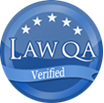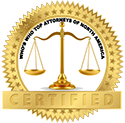On Behalf of Adler Law Group, LLC
Debilitating injuries resulting from a car crash can cause chronic pain, disability and loss of income. In Connecticut, you can recover legal compensation after a serious collision injury if you can prove that another driver was at fault in the accident.
Review the details about what to expect after a devastating auto accident.
Fault determination
As a fault state, Connecticut allows drivers to either seek compensation through insurance or file a lawsuit when another driver causes a crash. You can also start with an insurance claim and go through the legal system if you receive an unsatisfactory settlement.
As the plaintiff in this type of case, you must have police reports, witness testimony and other proof of fault on behalf of the defendant. If you share some fault in the crash, the judge can reduce your damages by your fault percentage based on the state’s modified comparative fault standard.
Available damages
Connecticut does not have a cap on auto accident damages. You can file a claim that covers your lost wages, medical bills and property damage as well as non-monetary costs such as loss of life enjoyment. The state makes punitive damages available in cases involving deliberate or reckless driving conduct. In this case, the judge has the discretion to award double or triple damages.
After you experience a serious auto accident that causes extensive injuries, you have up to two years to file a lawsuit. When you do not receive a diagnosis of injuries associated with the accident right away, the two-year deadline begins at the diagnosis date.



















